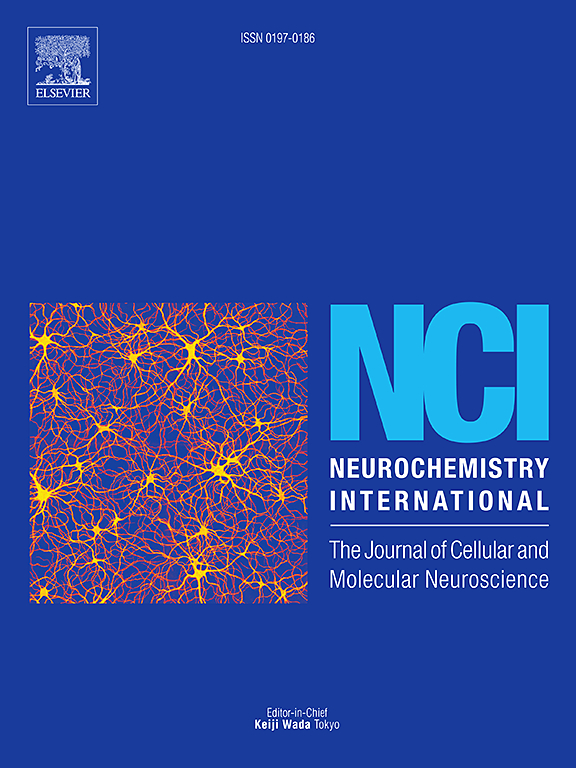Brain endocannabinoid control of metabolic and non-metabolic feeding behaviors
IF 4.4
3区 医学
Q2 BIOCHEMISTRY & MOLECULAR BIOLOGY
引用次数: 0
Abstract
The central endocannabinoid (eCB) system in brain shows a crucial role in the regulation of feeding behaviors, influencing both metabolic and non-metabolic mechanisms of appetite control, which has been paid much attention. Although there are already many review articles discussing eCB modulation of feeding behaviors, our paper attempts to summarize the recent advancements through synapses, circuits, and network in brain. Our focus is on the dual role of eCB signalling in regulating metabolic energy balance and hedonic reward-related feeding. In the context of metabolic regulation of feeding behaviors, eCBs affect the hypothalamic circuits that balance hunger and satiety through signal integration related to energy status and nutrient availability. Dysregulation of this system can contribute to metabolic disorders such as obesity and anorexia. In non-metabolic feeding, the eCB system influences the hedonic aspects of eating by modulating reward pathways, including the mesolimbic system and the olfactory bulb, critical for motivating food intake and processing sensory cues. This review also explores therapeutic strategies targeting the eCB system, including cannabinoid receptor antagonists and eCB hydrolase enzyme inhibitors, which hold promise for treating conditions associated with appetite dysregulation and eating disorders. By synthesizing recent findings, we aim to highlight the intricate mechanisms through which the eCB system affects feeding behavior and to propose future directions for research and therapeutic intervention in the realm of appetite control and eating disorders.
脑内源性大麻素对代谢性和非代谢性摄食行为的控制。
脑内中枢内源性大麻素(eCB)系统在摄食行为的调控中发挥着重要作用,影响着食欲控制的代谢和非代谢机制,已受到广泛关注。虽然已经有许多综述文章讨论了eCB对摄食行为的调节,但我们的论文试图从突触、电路和大脑网络的角度总结最近的研究进展。我们的重点是在调节代谢能量平衡和享乐奖励相关喂养的eCB信号的双重作用。在摄食行为代谢调节的背景下,eCBs通过与能量状态和营养可用性相关的信号整合影响下丘脑平衡饥饿和饱腹感的回路。该系统的失调会导致代谢紊乱,如肥胖和厌食症。在非代谢性进食中,eCB系统通过调节奖励通路(包括中边缘系统和嗅球)来影响进食的享乐方面,这些通路对刺激食物摄入和处理感官线索至关重要。本综述还探讨了针对eCB系统的治疗策略,包括大麻素受体拮抗剂和eCB水解酶抑制剂,它们有望治疗与食欲失调和饮食失调相关的疾病。通过综合最近的发现,我们旨在强调eCB系统影响摄食行为的复杂机制,并提出食欲控制和饮食失调领域的研究和治疗干预的未来方向。
本文章由计算机程序翻译,如有差异,请以英文原文为准。
求助全文
约1分钟内获得全文
求助全文
来源期刊

Neurochemistry international
医学-神经科学
CiteScore
8.40
自引率
2.40%
发文量
128
审稿时长
37 days
期刊介绍:
Neurochemistry International is devoted to the rapid publication of outstanding original articles and timely reviews in neurochemistry. Manuscripts on a broad range of topics will be considered, including molecular and cellular neurochemistry, neuropharmacology and genetic aspects of CNS function, neuroimmunology, metabolism as well as the neurochemistry of neurological and psychiatric disorders of the CNS.
 求助内容:
求助内容: 应助结果提醒方式:
应助结果提醒方式:


